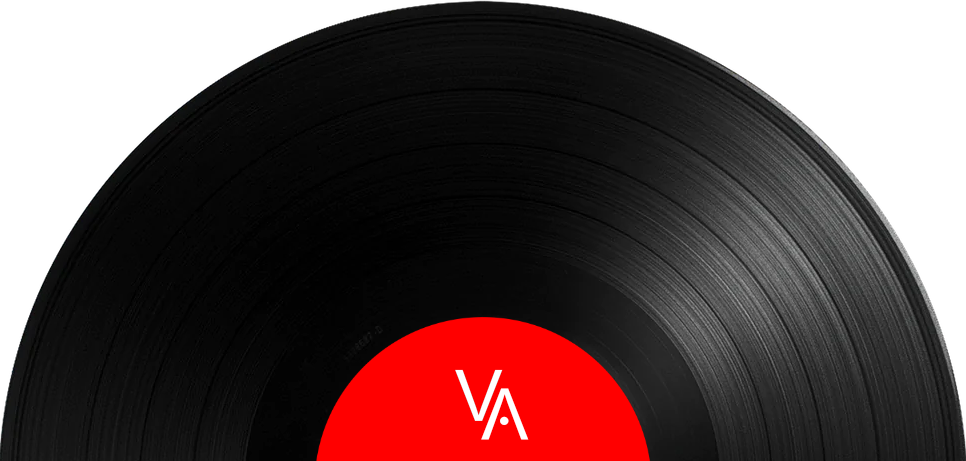I have a lot of Frank Zappa LPs. And for me, when it comes to Zappa, it all more-or-less started with this record. Or maybe it was Overnight Sensation (another great LP). But this one - I am listening to the latest reissue from the Zappa Trust - sounds absolutely amazing. It highlights the incredible musicianship, humour, imagination and technical prowess of one of the greatest composers that ever graced the planet. Seriously, if Frank had lived a few centuries earlier he’d have given Mozart a run for the money.
He was certainly prolific. Apostrophe ('), released in 1974, is the 18th album by Frank Zappa. Don't Eat the Yellow Snow, the lead-off track, peaked at number 86 on the Billboard chart while the album was certified gold in 1976 and peaked at number 10 on the billboard 200, a career-high for Zappa.
Nanook Rubs It, which follows Don't Eat The Yellow Snow, was inspired by a dream Zappa had where he envisioned himself as an Eskimo named Nanook. St. Alfonzo's Pancake Breakfast follows that, which was inspired by a television commercial for Imperial Margarine that Zappa had seen. Listened to as a whole, the three songs are almost conceptual in design. They're also musically stunning, and hilarious as hell.
This record and Over-Nite Sensation, released a year earlier in 1973, were recorded simultaneously, and as a result the two recordings sort of overlap stylistically. Side two consists of various 1972 sessions with overdubs recorded in 1973-74, except for Excentrifugal Forz. The drum track on that song is said to have come from the Hot Rats sessions in 1969.
The song Apostrophe is an outstanding instrumental with bassist Jack Bruce and drummer Jim Gordon credited on the liner notes. Bruce, who is also credited with co-writing the song, said in an interview with Polish rock magazine Tylko Rock that he did not play any bass guitar parts or do any co-writing and that he simply played the cello intro on the song. "So I turned up in a New York studio with my cello," he said. "I'm listening to Zappa's music, pretty awful, and just don't know what to do with myself, and Frank says to me, 'Listen, I would like you to play a sound, like this ... whaaaaaang!!!' So I did what he asked me to do. Whaaaaaang!!! That was all. That was my input to Frank Zappa's most popular record!"
But Zappa recalled Bruce playing bass on the song in an interview several years later. "Well, that was just a jam thing that happened because he was a friend of Jim Gordon," Zappa said. "I found it very difficult to play with him. He's too busy. He doesn't really want to play the bass in terms of root functions. I think he has other things on his mind. But that's the way jam sessions go."
Most people might be surprised to learn that Jack Bruce can play the cello, but he studied the instrument at the Royal Scottish Academy of Music and Drama years earlier. In 2016 the Zappa Family Trust released a CD of Apostrophe (') alternate mixes, different takes and live versions of material from the album. It includes early versions of the song Down in De Dew, which Zappa considered including on Apostrophe but didn't release until later on the LP Läther.
I don’t pull Frank off the shelf anywhere as often as I should, and perhaps I will make it a point to find the time to do it more often. I love this record and the Zappa Trust did a great job with this reissue.
I have a lot of Frank Zappa LPs. And for me, when it comes to Zappa, it all more-or-less started with this record. Or maybe it was Overnight Sensation (another great LP). But this one - I am listening to the latest reissue from the Zappa Trust - sounds absolutely amazing. It highlights the incredible musicianship, humour, imagination and technical prowess of one of the greatest composers that ever graced the planet. Seriously, if Frank had lived a few centuries earlier he’d have given Mozart a run for the money.
He was certainly prolific. Apostrophe ('), released in 1974, is the 18th album by Frank Zappa. Don't Eat the Yellow Snow, the lead-off track, peaked at number 86 on the Billboard chart while the album was certified gold in 1976 and peaked at number 10 on the billboard 200, a career-high for Zappa.
Nanook Rubs It, which follows Don't Eat The Yellow Snow, was inspired by a dream Zappa had where he envisioned himself as an Eskimo named Nanook. St. Alfonzo's Pancake Breakfast follows that, which was inspired by a television commercial for Imperial Margarine that Zappa had seen. Listened to as a whole, the three songs are almost conceptual in design. They're also musically stunning, and hilarious as hell.
This record and Over-Nite Sensation, released a year earlier in 1973, were recorded simultaneously, and as a result the two recordings sort of overlap stylistically. Side two consists of various 1972 sessions with overdubs recorded in 1973-74, except for Excentrifugal Forz. The drum track on that song is said to have come from the Hot Rats sessions in 1969.
The song Apostrophe is an outstanding instrumental with bassist Jack Bruce and drummer Jim Gordon credited on the liner notes. Bruce, who is also credited with co-writing the song, said in an interview with Polish rock magazine Tylko Rock that he did not play any bass guitar parts or do any co-writing and that he simply played the cello intro on the song. "So I turned up in a New York studio with my cello," he said. "I'm listening to Zappa's music, pretty awful, and just don't know what to do with myself, and Frank says to me, 'Listen, I would like you to play a sound, like this ... whaaaaaang!!!' So I did what he asked me to do. Whaaaaaang!!! That was all. That was my input to Frank Zappa's most popular record!"
But Zappa recalled Bruce playing bass on the song in an interview several years later. "Well, that was just a jam thing that happened because he was a friend of Jim Gordon," Zappa said. "I found it very difficult to play with him. He's too busy. He doesn't really want to play the bass in terms of root functions. I think he has other things on his mind. But that's the way jam sessions go."
Most people might be surprised to learn that Jack Bruce can play the cello, but he studied the instrument at the Royal Scottish Academy of Music and Drama years earlier. In 2016 the Zappa Family Trust released a CD of Apostrophe (') alternate mixes, different takes and live versions of material from the album. It includes early versions of the song Down in De Dew, which Zappa considered including on Apostrophe but didn't release until later on the LP Läther.
I don’t pull Frank off the shelf anywhere as often as I should, and perhaps I will make it a point to find the time to do it more often. I love this record and the Zappa Trust did a great job with this reissue.



